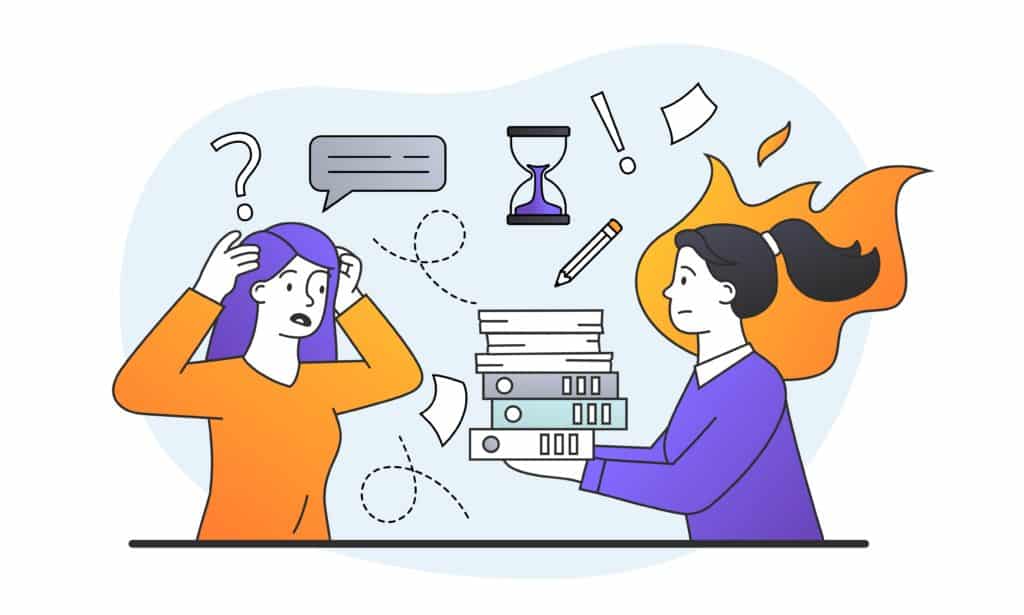Do I Have ADHD? Quiz, Symptoms & Natural Remedies

According to the CDC, nearly 6.1 million children are reportedly diagnosed with ADHD and 6 out of 10 individuals diagnosed with ADHD also suffer from another mental, emotional or behavioral disorder. This is only from parent surveys that participated in the surveys and this only includes those children and adolescents that are diagnosed. Many people can go undiagnosed and some may never even be evaluated.
ADHD affects around 4.4% of adults currently, however, there has been some evidence about the correlation between anxiety and ADHD. Again this is only a number based on the reported diagnoses, and it neglects the individuals who suffer from it and do not get an evaluation, meaning it is probably quite a bit higher.
Table of Contents
Do I have ADHD?
Have you had 6 of the following symptoms for 6 months or more (must be 17 years or older)?
Inattention Symptoms:
- Makes careless mistakes & misses details
- Has difficulty remaining focused during lectures, activities or lengthy reading
- Mind is elsewhere and does not listen to when spoken directly to
- Fails to complete schoolwork, chores, or workplace duties
- Has difficulty organizing tasks & activities (managing sequential tasks, messy, disorganized, poor time management, fails to meet deadlines)
- Avoids dislikes, reluctant to engage in tasks that require sustained mental effort & attention ( lengthy papers, schoolwork)
- Loses things necessary for tasks (school materials, wallet, phone, etc.)
- Easily distracted by outside stimuli (including unrelated thoughts)
- Forgetful in daily activities (running errands, returning calls, paying bills, etc.)
Hypersensitivity & Impulsivity Symptoms:
- Fidgets or taps hands and/or feet
- Has a hard time staying seated when required to do so
- Runs about or climbs in situations when it is inappropriate
- Unable to engage in leisure activities quietly
- Uncomfortable being still for an extended period of time
- Talks excessively
- Blurts out an answer before a question can be completed
- Difficulty waiting for turns
- Interrupts or intrudes (using other people’s things without asking, cutting someone off in conversation
These are just symptoms of ADHD, many diagnoses can overlap and I do not recommend self-diagnosing every disorder you find on the internet. However, this should be a guide to help you start that conversation with your doctor and have them refer you to a mental health professional who can further help you.
ADHD Quiz
The Conners Comprehensive Behavioral Rating Scale is one of the assessments used to diagnose ADHD. After answering the questions above that cover symptoms found in the DSM-V and you are still wondering do I have ADHD? Then trying a further assessment or working with your therapist for a proper mental health diagnosis will be very helpful!
What Causes AHDH?
Genetic vulnerability can increase the risk of ADHD, anxiety and other mental health disorders.
Anxiety and ADHD have shown a lot of overlap recently and they commonly occur together in childhood and continue throughout adulthood. The correlation between ADHD and anxiety is actually as high as 25%. (Michelini, et al., 2015)
ADHD is co-occurring with anxiety when trying to complete visuospatial working memory tasks. This causes impaired working memory and can contribute to decreased academic performance. This dysfunction causes issues with executive functioning and spatial awareness. (van der Meer, et al., 2018)
Since anxiety and ADHD have correlational addressing both can be helpful in reducing overall symptoms.
- -How to Learn relaxation techniques you can do anywhere.
- -Identify anxiety in yourself and others.
- -Learn how to better react to situations and set a firm foundation for dealing with stressful situations.
- Use Natural Supplements, Dietary, and Lifestyle changes to help you feel less anxious sooner.
- I am a Counselor in Training, so I share what I learn through my education and experience and the price will go up shortly--- However! You will get all of the free updates I make to the course at no additional charge to you! As I learn through research, my education, and personal experimentation of new supplement regimens I will share them with you!
How to Treat ADHD
There are natural ways to cope with ADHD however, it is typically treated with psychotherapy and medications.
Psychotherapy is a natural drug-free treatment also referred to as “talk therapy” or “counseling”.
Understanding what vitamins and minerals you are deficient in can help you get to the root of the issue rather than treating the symptoms.
However, here are some things that are helpful for anxiety and ADHD:
- Magnesium
- Inositol (a B-vitamin)
- Niacin ( Vitamin B-3)
- L- Carnitine
- Minimizing food dyes, artificial flavors, and artificial sweeteners (sucralose which is Splenda, sweet n low, etc. )
- Eating anti-inflammatory foods (whole, organic fruits, vegetables, and meats) there are exceptions
- Improve gut health
- Exercise daily
- Get Sun on your bare skin (track the time so you don’t get burnt)
- Get 8+ hours of sleep every night
- Create strategies to help you focus better
- Mindfulness meditation helps you focus on the current moment instead of everything around you
Conclusion
ADHD can be coped with naturally and lifestyle changes can aid in managing symptoms and treating the disorder. Diagnosis can occur in adulthood but it is more commonly discovered in childhood. Lifestyle changes play a major role in any mental health disorder so even if you think you do not have ADHD and it may be something else, it is still beneficial to address health concerns holistically.
References:
Michelini, G., Eley, T. C., Gregory, A. M., & McAdams, T. A. (2015). Aetiological overlap between anxiety and attention deficit hyperactivity symptom dimensions in adolescence. Journal of child psychology and psychiatry, and allied disciplines, 56(4), 423–431. https://doi.org/10.1111/jcpp.12318
van der Meer, D., Hoekstra, P. J., van Rooij, D., Winkler, A. M., van Ewijk, H., Heslenfeld, D. J., Oosterlaan, J., Faraone, S. V., Franke, B., Buitelaar, J. K., & Hartman, C. A. (2018). Anxiety modulates the relation between attention-deficit/hyperactivity disorder severity and working memory-related brain activity. The world journal of biological psychiatry : the official journal of the World Federation of Societies of Biological Psychiatry, 19(6), 450–460. https://doi.org/10.1080/15622975.2017.1287952
Originally posted 2022-07-03 05:40:14.
Megan Santiago
Latest posts by Megan Santiago (see all)
- How to Find a Trauma Therapist in Tampa - September 30, 2024
- 19 Important Facts That You Should Know About The Work From Home Jobs Industry - March 10, 2024
- Codependency Books: Getting the Love You Deeply Crave - March 10, 2024

